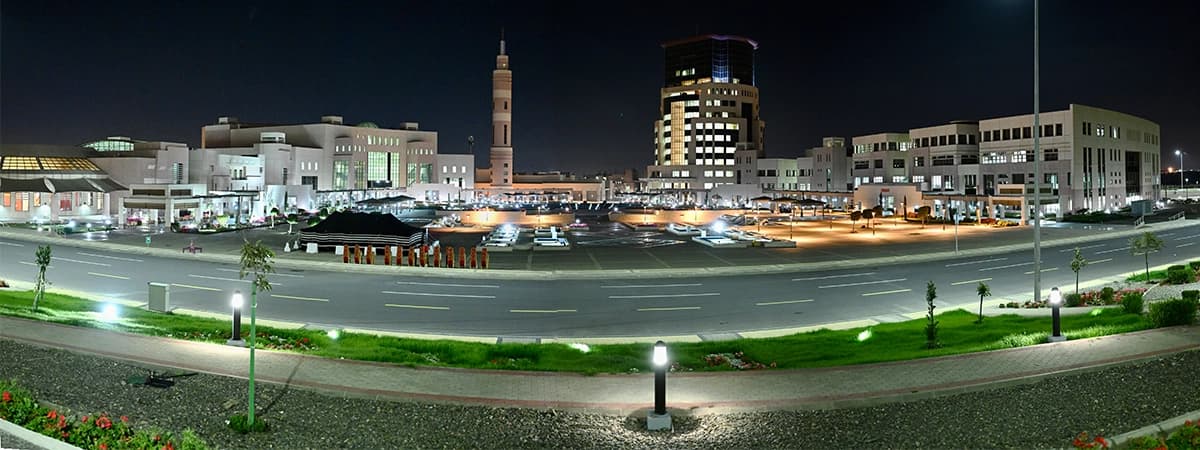King Khalid University
News & Events

4 workshops at the conclusion of symposium on small and medium-sized enterprises.
King Khalid University, Media Center
The symposium on small and medium-sized enterprises was continued with its tasks for the second day. The symposium is organized by King Khalid University (KKU), represented by Corporates' Governance Center. 4 workshops were held with the participation of a number of those who are interested in matters of investment and entrepreneurship.
The first workshop was presented by a teacher of accounting in the Finance and administrative College of King Khalid University, Dr. Hemeida Abdulmajeed. His presentation was under the title, "Arbitrages and their roles in planning and censorship in small and medium-sized enterprises." In this workshop, Dr. Abdulmajeed discussed the process of arbitrage preparation procedures, principles of arbitrage preparation, in addition to the types of arbitrates, depending on the period of time an arbitrate covers, purchases arbitrate, production, needed materials for production, variable industrial wages arbitrate, fixed and variable costs arbitrate, in addition to the subject of deviations analysis of the arbitrate.
During the second workshop, which was set for women, Dr. Ashwaq Al Qahtani, from the secretariat of Asir region, revealed the most important obstacles that productive families in Saudi Arabia may face. These obstacles are weakness of project feasibility studies, low skills and experience in the technical aspects of the activity, lack of experience of how to get the equipment and required raw materials, lack of management experience, lack of experience in marketing mechanisms, lack of adequate funding, in addition to a lack of enough boldness and awareness, and how it is important for the women to start their own business, and to compete with similar projects run by other women of the expatriate labor.
Dr. Al-Qahtani said that the vision of Saudi Arabia - 'Vision 2030 - focused on supporting small and medium-sized enterprises, and considered these enterprises as the most important incentive for the economic growth and productive families because part of these enterprises need support to achieve the vision of Saudi Arabia. As part of Vision 2030, the Kingdom of Saudi Arabia has recently announced the main target as was determined; raise the contribution of small and medium-sized enterprises in the national outcome from 20% to 35%. Furthermore, Saudi Arabia has established a special body to support small and medium-sized enterprises. Undoubtedly, this body will contribute to money recycling internally, rather than export it abroad through labor serving the country's economy. Dr. Al-Qahtani listed seven obstacles that stand in the way of investment in small and medium-sized enterprises. They are the cost of capital, inflation, government funding, red tape, taxation, competition, and scarcity of raw materials. She explained that the seven rules for successful investment centered on the place, modern areas, existing projects, cooperation with the owners of expertise and investment according to financial capabilities.
In the third workshop, trainer on small and medium-sized enterprises and entrepreneurs at "Entrepreneurship" Institute, Prof. Lo'ae Radwan, discussed the subject of small projects from concept to completion. He talked about several topics, notably the core partners, tasks and basic sources, in addition to the basic value and the relationship with customers and channels and target segments, and also restructuring costs, as well as sources of income for small businesses in general.
After that, the representative of Social Development Bank, Mr. Khalid Al-Maliki, directed an open panel discussion with the audience, to answer their questions about the role of the Development Bank in supporting small and medium-sized enterprises, and how to use them.
It is noteworthy that the symposium was concluded with a workshop about financial analysis and its role in decision-making in small and medium-sized enterprises. It was presented by Dr. Mohammed Bagahr, in which he discussed the concept of financial analysis, and the purpose of financial analysis, in addition to beneficiaries, the levels and methods of financial analysis, and the subject of the financial statements, vertical and horizontal analysis, financial ratios, and finally the prediction of financial failure.
